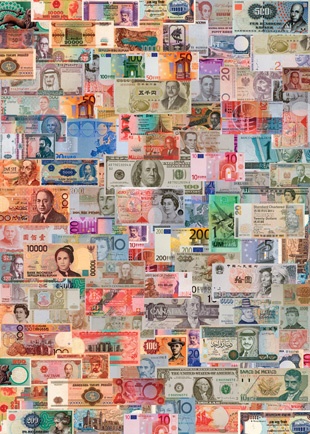Published by Cyril | August 30, 2025
Not every nation mints its own money. Many have adopted foreign currencies or unified regional currencies—for reasons ranging from economic stability and historical legacies to trade convenience. Here are ten countries (and territories) that either use another country’s currency as legal tender or share a common currency without issuing their own:
1. Ecuador
Abandoned its own currency, the sucre, in 2000 after rampant inflation and a financial crisis. It now uses the U.S. dollar as legal tender, retaining only centavo coins.
2. El Salvador
Ditching the Salvadoran colón in 2001, the country fully dollarized to the U.S. dollar to stabilize the economy, control inflation, and attract investment.
3. Panama
The U.S. dollar was adopted upon independence in 1903 for stability and ease of trade. The Panamanian balboa, pegged at par, exists only as coins.
4. Timor-Leste (East Timor)
Following independence and currency volatility, it adopted the U.S. dollar in 2000 as its official currency.
5. Palau (and Marshall Islands, Micronesia)
These Pacific island nations use the U.S. dollar under compacts of free association, foregoing national currencies and monetary policy.
6. Turks and Caicos Islands & British Virgin Islands
As British Overseas Territories, both use the U.S. dollar officially, rather than issuing their own.
7. Zimbabwe
After hyperinflation destroyed the Zimbabwean dollar, the country abandoned it in 2009, relying on multiple foreign currencies such as the U.S. dollar, rand, euro, and later introducing a gold-backed local currency (ZiG) in 2024. Nonetheless, no purely national tender is maintained.
8. Montenegro & Kosovo
Neither of these countries has its own currency. Instead, both unilaterally adopted the euro as legal tender to foster trade, stability, and integration with Europe.
9. Andorra, Monaco, San Marino & Vatican City
Microstates that have formal agreements to use the euro, even minting their own limited coins, but they do not issue independent currencies.
10. Liechtenstein
This European principality is one of the wealthiest and safest countries globally, yet it uses the Swiss franc instead of issuing its own currency.
HEED: Follow us on Instagram or any other social media platform and get the most reliable news directly in your favourite app!
Summary Table
- Country / Territory Currency Used Reason or Context
- Ecuador, El Salvador, Panama, Timor-Leste, Palau, Marshall Islands, Micronesia, Turks & Caicos, British Virgin Islands, U.S. Dollar Stability, dollarization
- Zimbabwe Multiple (USD, rand, euro, ZiG) Hyperinflation aftermath
- Montenegro, Kosovo, the Euro Trade, and integration
- Andorra, Monaco, San Marino, Vatican City Euro EU agreements
- Liechtenstein Swiss Franc Integration with the Swiss economy
Why Do These Countries Forego Their Own Currency?
- Monetary Stability – Adopting strong currencies helps control inflation and stabilize economies.
- Economic Integration – Facilitates easier trade and financial policy alignment.
- Size and Practicality – Small nations or microstates may find it impractical to manage currency issuance and monetary policy.
- Crisis Response – In cases like hyperinflation (e.g., Zimbabwe), countries resort to foreign currencies to restore economic confidence.
NaijaBlogDaily# is visible on all social media platforms, bringing you the latest Nigerian news on politics, economy, entertainment, and celebrity updates. Including sports across Nigeria and beyond…
Keep visiting and following up with us on any social media platform you are using to keep you updated 💯
Remember (information brings knowledge and power).
STAY TUNED!!!



